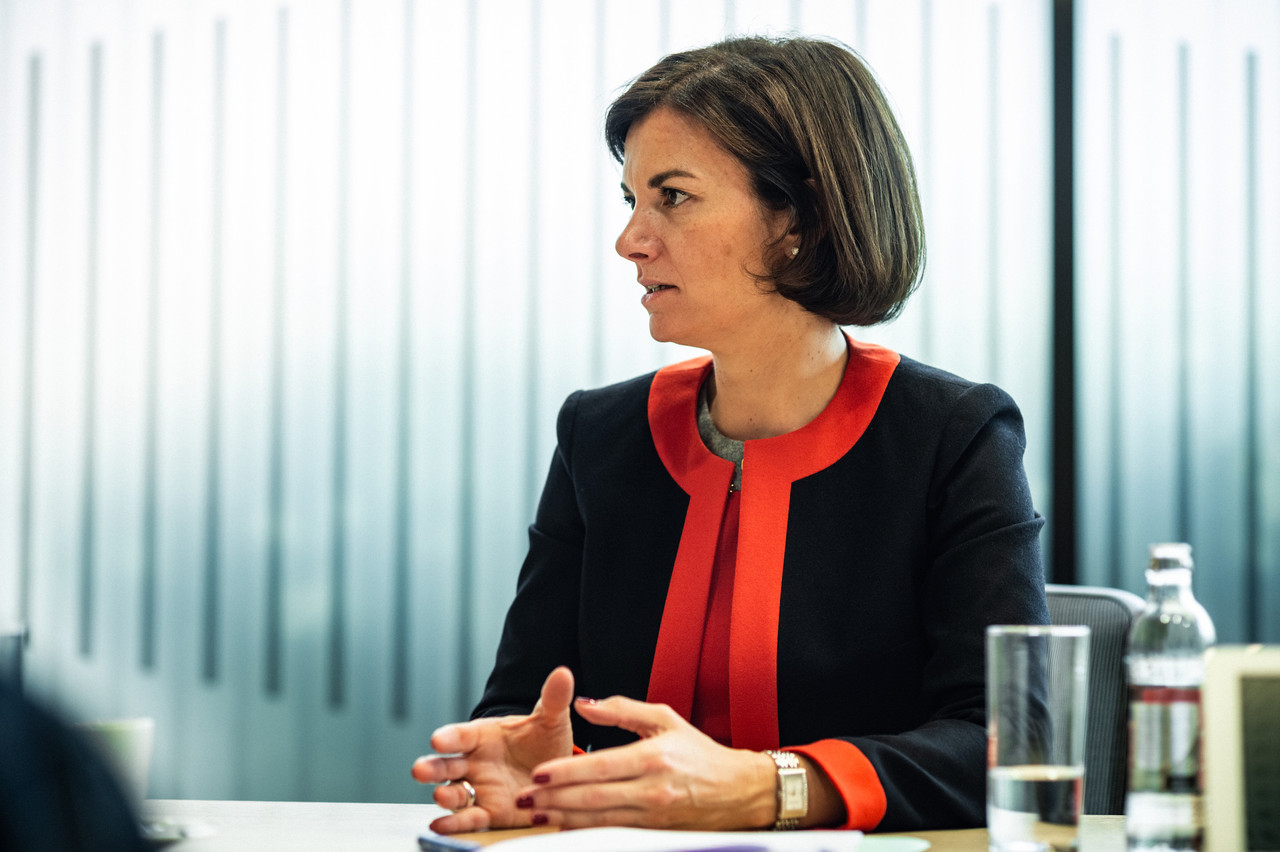Among other things, the report notes a 20% reduction in greenhouse gas emissions since 2019, when it started measuring its carbon footprint. In that year it produced 862 tonnes of CO2 (equivalent), which fell to 688 in 2022.
This is the first time that the LuxSE has made these numbers public. “The carbon footprint assessment gives us the opportunity to evaluate our emissions and draw up actions to further reduce it,” says the report.
In the four-year span, the greatest volume of reduction came in the area of air conditioning use, purchased heating and purchased electricity (-69%). Car fleet energy consumption and building energy consumption, taken together, were reduced by 42%. The final category measured--which groups together staff commutes, business travel, furniture, paper, IT equipment, purchases, and building and car fleet immobilisation--saw a reduction of 11%.
The report also notes that the number of full-time employees (equivalent) went up from 120.4 to 137.7 (+14.3%) over this time period. Taking this into account, the total greenhouse gas emissions per FTE went from 7.2 to 5.0 (-30.2%).
Not included in the calculation are the activities of suppliers, nor lending, funding and investment activities.
“Although these reductions are significant, a large part is linked to the impact of the global pandemic on our business and activities,” writes the organisation, citing new norms regarding remote work and interaction with clients, as well as business travel.
(Generally speaking, business travel still hasn’t returned to pre-pandemic levels: that Luxembourg residents collectively took 512,000 business trips in 2019 versus just 323,000 in 2022.)
“We are working to ensure that our carbon emissions do not go back to pre-pandemic levels,” adds the LuxSE in the report.
Gender balance
The report also contains data on the men/women split within the organisation. The total headcount of 138 breaks down to 86 men and 52 women. There are 13 male managers to 6 female; three men and one woman on the executive committee; and 13 men on the board of directors versus two women.
“While there is still a long way to go to narrow the gender gap,” says the report, “over the last few years, LuxSE has pushed for greater gender representation, including in key decision-making positions.”
The report mentions a related action plan in the works, to be eventually validated by the equality ministry before implementation. The plan seeks to analyse and improve gender equality at the LuxSE, focusing on three areas: recruitment, decision-making and professional/private balance.
Education
The Luxembourg Green Exchange (LGX) Academy, launched in 2020, hit a new record in 2022, says the report: 171 hours of knowledge shared and 316 participants trained.
Says the report: “The objective of the LGX Academy is to broaden the overall market understanding of the foundations of sustainable finance, promote inclusive investment products and help direct future capital flows towards sustainable investment projects.”
Some 61% of LuxSE employees took part in LGX Academy courses in 2022, a number that the organisation hopes to increase to 100% by the end of 2023.
Among other external collaborations, including the delivery of courses with the House of Training the University of Luxembourg, the LuxSE in July with the India-based Global Institute for Circular Economy and Sustainable Development Goals.
Looking ahead
Speaking about LuxSE’s priorities for 2023, CEO Julie Becker says in the report: “In 2023, we will continue to build on the momentum of last year’s positive actions. We have defined ambitious objectives, but we will continue to innovate and invest to progress towards our three sustainability objectives--climate transition, education, and gender equality. As we look into the future, we stand ready to further support the markets in which we operate to move to a more inclusive and sustainable future, where net zero will become the new normal.
Download the full CSR report via .
